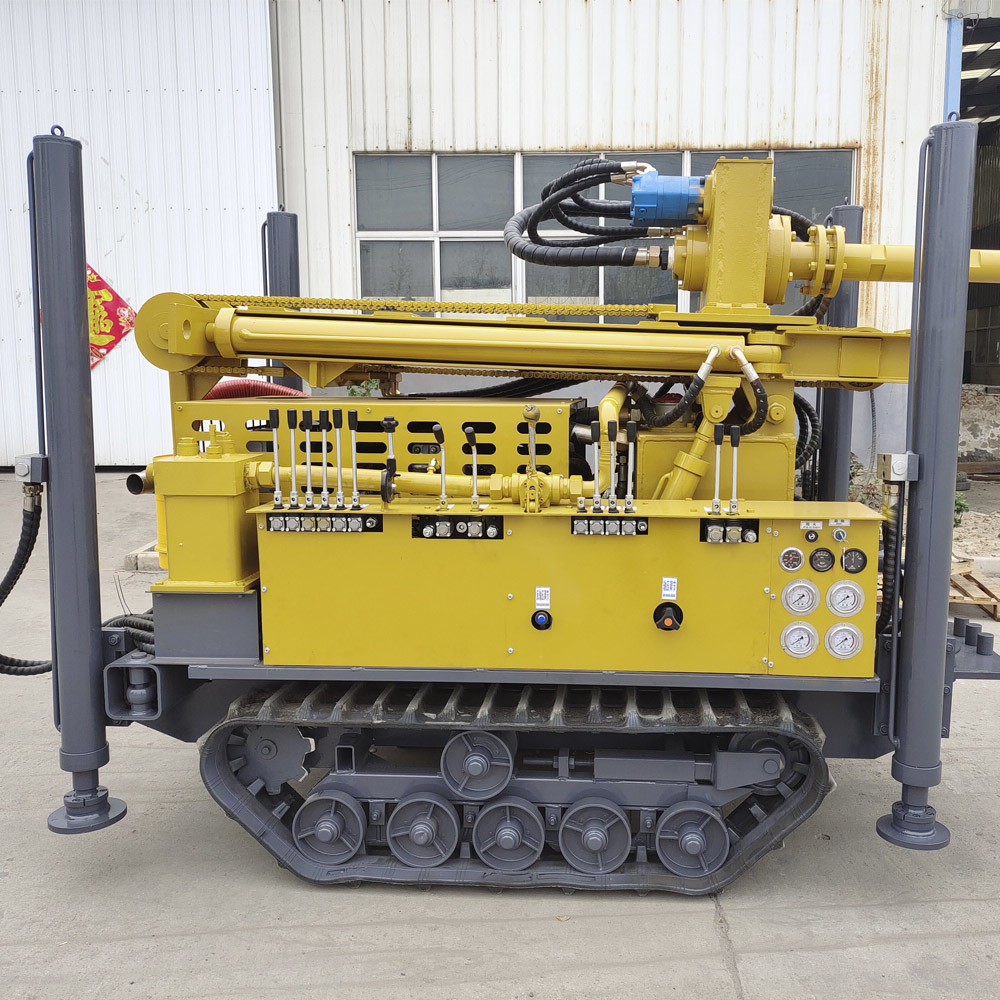Understanding Borehole Drilling Machines: Essential Insights for Professionals
Oct 04,2025

Borehole drilling machines are integral tools in the engineering and construction industries, designed to create deep, narrow holes in the ground for various applications, including water extraction, geothermal energy, and mineral exploration. These machines can range from portable units used for small-scale projects to large, sophisticated rigs capable of reaching significant depths.
One of the primary functions of a borehole drilling machine is to facilitate the extraction of groundwater. In regions where surface water is scarce, these machines enable the drilling of wells that tap into underground aquifers. By creating a borehole, these machines provide access to a reliable water source, essential for agricultural, industrial, and residential use.
In addition to water extraction, borehole drilling machines are crucial in the field of geothermal energy. By drilling deep into the Earth, these machines help to access geothermal reservoirs, which can be harnessed for renewable energy production. The efficiency and effectiveness of the drilling operation directly impact the overall success of geothermal projects, making the choice of drilling machinery critical.
Another significant application of borehole drilling machines is in mineral exploration. The mining industry relies on these machines to obtain core samples from the Earth's crust, allowing geologists to assess the presence and viability of mineral deposits. The precision and reliability of borehole drilling are vital for ensuring accurate sampling and minimizing environmental impact.
When selecting a borehole drilling machine, professionals should consider several factors, including the type of soil and rock formations, the required drilling depth, and the machine's mobility. Different drilling methods, such as rotary drilling or percussion drilling, may be more suitable depending on the specific project requirements. Additionally, advancements in technology have led to the development of more efficient and environmentally friendly drilling techniques, which can reduce operational costs and ecological footprints.
Safety is another critical aspect of borehole drilling operations. Proper training for operators and adherence to safety protocols are essential to mitigate risks associated with high-pressure systems, hazardous materials, and challenging working environments. Ensuring that the drilling equipment is well-maintained and regularly inspected can also enhance safety and operational efficiency.
In conclusion, borehole drilling machines play a pivotal role in various sectors, from water resource management to energy production and mineral exploration. Understanding the capabilities and applications of these machines allows industry professionals to make informed decisions that enhance project outcomes while promoting safety and sustainability. As technology continues to evolve, staying updated on the latest advancements in borehole drilling will be crucial for maintaining a competitive edge in the engineering and construction industries.
One of the primary functions of a borehole drilling machine is to facilitate the extraction of groundwater. In regions where surface water is scarce, these machines enable the drilling of wells that tap into underground aquifers. By creating a borehole, these machines provide access to a reliable water source, essential for agricultural, industrial, and residential use.
In addition to water extraction, borehole drilling machines are crucial in the field of geothermal energy. By drilling deep into the Earth, these machines help to access geothermal reservoirs, which can be harnessed for renewable energy production. The efficiency and effectiveness of the drilling operation directly impact the overall success of geothermal projects, making the choice of drilling machinery critical.
Another significant application of borehole drilling machines is in mineral exploration. The mining industry relies on these machines to obtain core samples from the Earth's crust, allowing geologists to assess the presence and viability of mineral deposits. The precision and reliability of borehole drilling are vital for ensuring accurate sampling and minimizing environmental impact.
When selecting a borehole drilling machine, professionals should consider several factors, including the type of soil and rock formations, the required drilling depth, and the machine's mobility. Different drilling methods, such as rotary drilling or percussion drilling, may be more suitable depending on the specific project requirements. Additionally, advancements in technology have led to the development of more efficient and environmentally friendly drilling techniques, which can reduce operational costs and ecological footprints.
Safety is another critical aspect of borehole drilling operations. Proper training for operators and adherence to safety protocols are essential to mitigate risks associated with high-pressure systems, hazardous materials, and challenging working environments. Ensuring that the drilling equipment is well-maintained and regularly inspected can also enhance safety and operational efficiency.
In conclusion, borehole drilling machines play a pivotal role in various sectors, from water resource management to energy production and mineral exploration. Understanding the capabilities and applications of these machines allows industry professionals to make informed decisions that enhance project outcomes while promoting safety and sustainability. As technology continues to evolve, staying updated on the latest advancements in borehole drilling will be crucial for maintaining a competitive edge in the engineering and construction industries.








